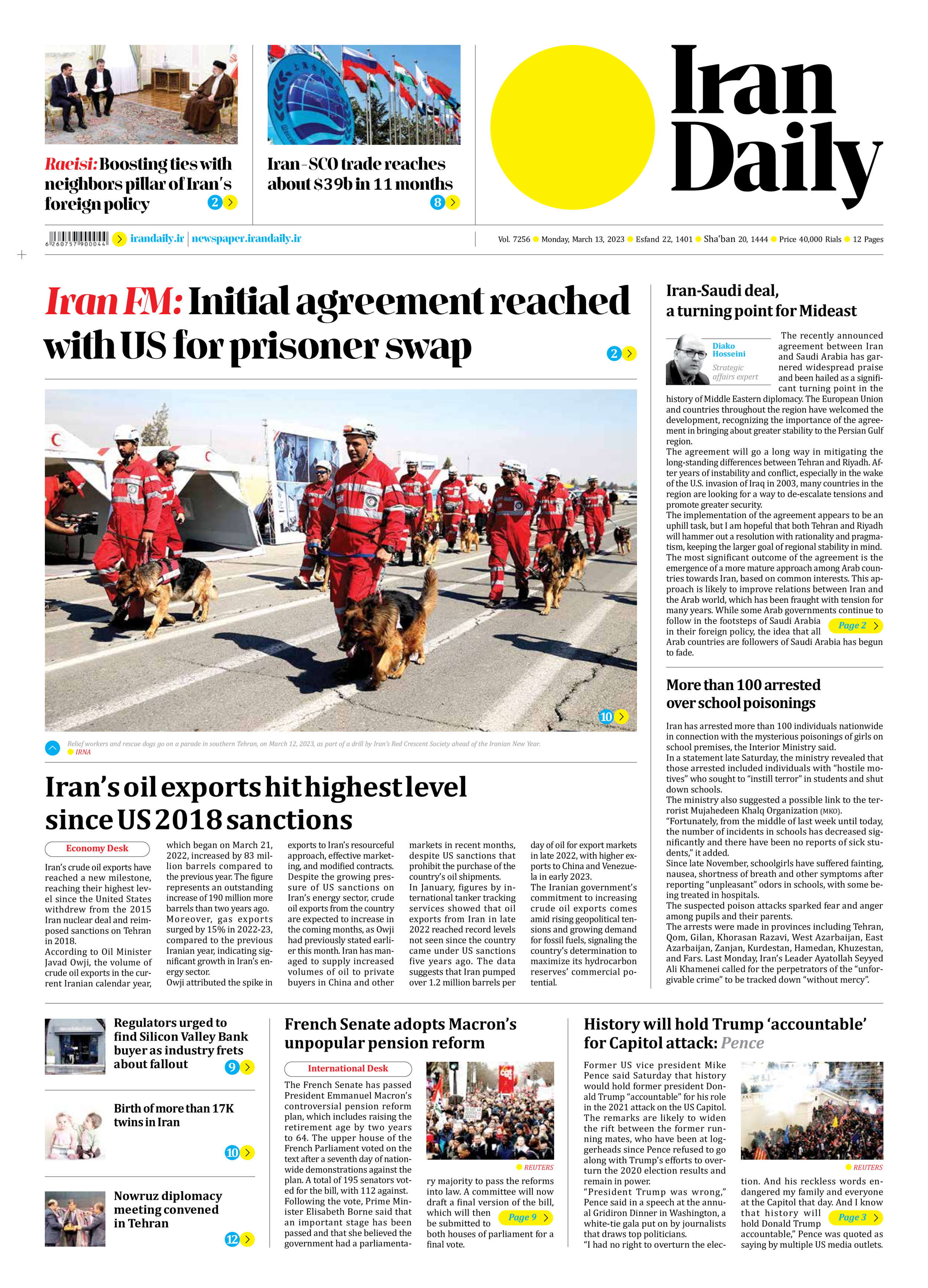
Iran-Saudi deal, a turning point for Mideast
Diako Hosseini
Strategic affairs expert
The recently announced agreement between Iran and Saudi Arabia has garnered widespread praise and been hailed as a significant turning point in the history of Middle Eastern diplomacy. The European Union and countries throughout the region have welcomed the development, recognizing the importance of the agreement in bringing about greater stability to the Persian Gulf region.
The agreement will go a long way in mitigating the long-standing differences between Tehran and Riyadh. After years of instability and conflict, especially in the wake of the U.S. invasion of Iraq in 2003, many countries in the region are looking for a way to de-escalate tensions and promote greater security.
The implementation of the agreement appears to be an uphill task, but I am hopeful that both Tehran and Riyadh will hammer out a resolution with rationality and pragmatism, keeping the larger goal of regional stability in mind.
The most significant outcome of the agreement is the emergence of a more mature approach among Arab countries towards Iran, based on common interests. This approach is likely to improve relations between Iran and the Arab world, which has been fraught with tension for many years. While some Arab governments continue to follow in the footsteps of Saudi Arabia in their foreign policy, the idea that all Arab countries are followers of Saudi Arabia has begun
to fade.
A new-found maturity has surfaced among Arab countries, prompting them to redefine their ties with Iran based on shared necessities and interests. And this agreement could have wider implications, including the normalization of relations between Iran and Egypt. It would have far-reaching consequences for both countries, allowing Cairo to expand its influence beyond North Africa and strengthen its economic and international capacities.
China’s role in mediating this agreement is also significant. As China has become an increasingly influential global player, it has taken on a more active role in international affairs, including in the Persian Gulf region. Its involvement in normalizing relations between Iran and Saudi Arabia marks a shift away from American influence in the region, emphasizing that international security is no longer solely dependent on the United States.
The curtailment of American influence in the West Asian region is the most important international message conveyed by the agreement between Iran and Saudi Arabia.







